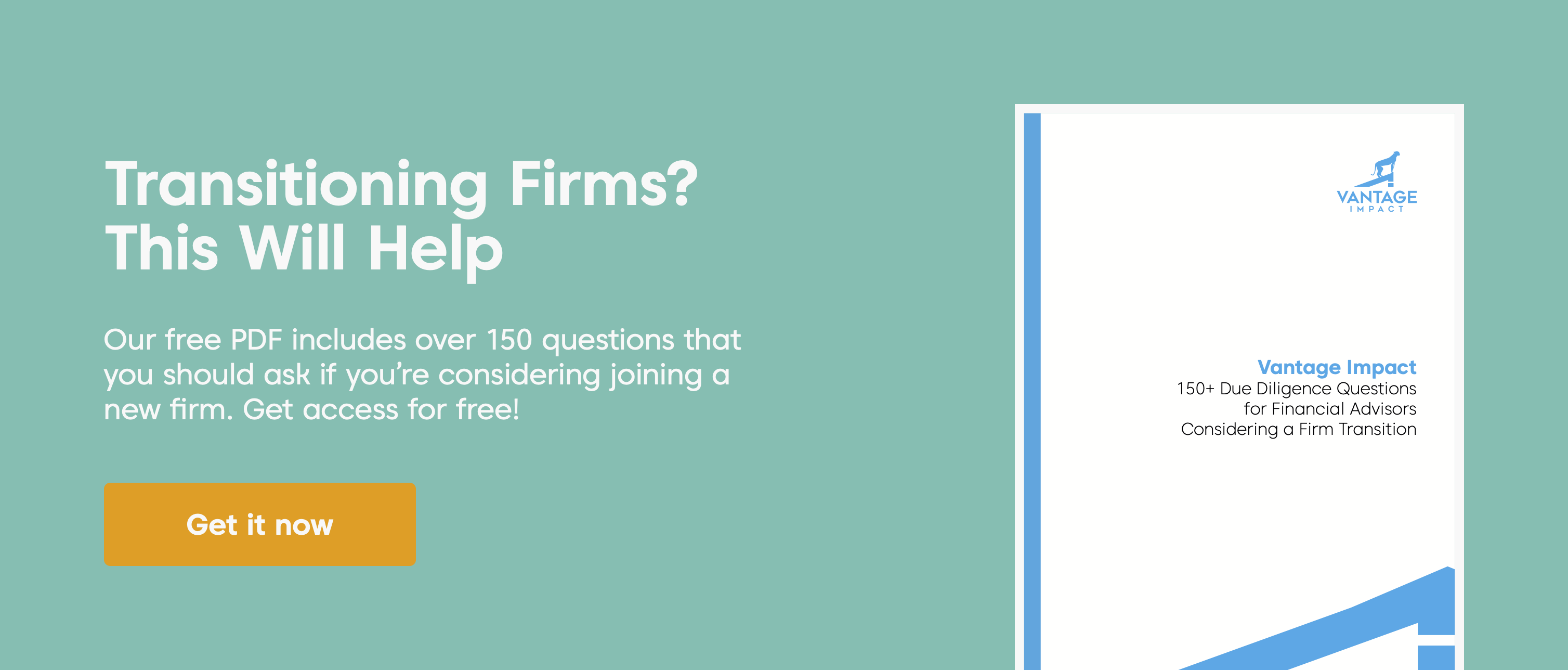Does it feel like your firm has put you in the penalty box?
Each year firms implement changes that directly impact their financial advisors. While some advisors will benefit financially from these changes, certain advisors will be negatively affected financially.
Do you fall in the latter category?
If recent changes were made to your company’s compensation schedule that reduce your earning potential, it may be time to consider finding a new firm.
Let’s examine what it means for you to be in the “penalty box,” how it could have happened to you as an advisor, and how you can take steps to find your way out.
What do we mean by the penalty box?
When advisors fail to perform or miss compensation targets, firms will often implement gimmicky compensation schedules as a penalty. These compensation schedules will typically reduce an advisor’s take home pay by up to 5-figures!
Why do we say gimmicky?
Most advisors in the penalty box tell us that the original compensation targets and goals were unrealistic to begin with. If it’s virtually impossible to achieve, why are you being penalized for it?
Understandably, being put in the penalty box can make advisors feel demoralized, angry, and wondering about next steps. It is often a catalyst for financial advisors to decide to transition to a new firm.
Most have already considered transitioning at some point.
Being put in the penalty box is the straw that broke the camel’s back.
Why am I in the penalty box?
Each year firms perform a series of calculations to determine how much a company needs to earn from their advisors in order to cover the costs of running the company or division.
It’s a balancing act. The firm seeks to keep enough of what an advisor produces to generate a positive return for shareholders or partners of the business.
Makes sense. It’s a business after all.
The problem is that not all advisors are treated the same in the process.
When companies make these decisions, it’s all about retaining the top producing advisors at the firm.
For the advisors at lower production levels, the compensation rates are purposefully set to force advisors to do one of three things:
1. Join a Team
Many firms struggle to increase top line revenue so they try improving profit margins instead. The most significant expense a firm has is what they pay their financial advisors. By greatly reducing an advisor’s payout rate, firms try to necessitate the move to team up with a larger practice as the only way to get back to a higher payout rate. Firms know how challenging it is for a larger team of advisors to join the competition, and this is one tactic to prevent them from leaving.
2. Be Motivated to Perform
Even though most people do not respond positively to being treated poorly, many larger firms think paying an advisor less will motivate them to do more business. Executives making these decisions think paying advisors less will enliven and re-energize them, giving them the proper enthusiasm to climb up the compensation schedule to attain the rate they want.
But really, who wants to do more work just to make less?
3. Leave the Firm
The truth of the matter is that these large firms are making a statement when they put you in the penalty box - they just do not value or appreciate you as an advisor.
These firms actually do not mind when lower producers leave because the average production per advisor improves, and everything sounds better during shareholder calls.
These firms also think that clients are working with the advisor because of the firm - not due to the personal relationship and great customer service that has been provided.
They are saying, in essence, that you are completely replaceable with another advisor.
Align Yourself with the Right Philosophical Approach
It comes down to the firm’s philosophy and their general approach to financial advisors. We see two different approaches employed today by firms across the industry.
The European Model
European model firms seek to gain as much control of the client relationships as possible by placing advisors into new compensation schedules.
While beginning with the lowering of payout rates, this has gradually shifted into moving more and more advisors into a salary and bonus compensation plan.
It also comes in the forms of requiring advisors to sign more restrictive agreements making it harder for them to leave and influencing the advisor’s behavior by dictating what is sold to clients.
What’s the long-term strategy for these firms? And why do they believe this approach will make their business more profitable?
Large firms are purchasing clients directly from their long term advisors who built their practice, and they are re-assigning them to new advisors who simply service the account. These new advisors do not typically have the same level of expertise as more experienced advisors with many years in the financial services industry.
By shifting accounts to less experienced advisors and reducing overall payout rates owed to financial advisors, these firms believe the business will be more profitable in the long-term. They are taking the gamble that the reward of lower financial advisor costs will outweigh assets lost due to providing exceptional service.
We see more and more of the larger firms in the United States adapting the “European model” approach.
The American Model
American model firms believe in a more entrepreneurial approach where advisors build their business, are compensated fairly for their work, and have the control over deciding who to sell their business to in the future.
The financial advisors in these firms are working with companies who believe the advisor’s relationship with the client comes before the firm’s relationship with the client.
How can you tell this is happening?
Listen to the clients when they talk about who they work with for financial advice. Does the client mention the firm or the name of the advisor/practice?
If they talk first about the financial advisor or the practice, you are probably looking at the American model in action.
Speak with Your Feet and Get Out of the Penalty Box
Being put in the penalty box is often one of the first indicators that a firm is moving more towards the European model of compensating advisors. It’s just the tip of the iceberg.
If you’re in the penalty box, do you want to become just a number to a larger organization?
It’s time to speak with your feet and get out of the penalty box.
There are established and newly emerging firms across the industry offering superior compensation plans that can significantly improve your financial life.
The next time you come into the office feeling unappreciated or find yourself complaining about the changes taking place at your firm, give us a call.
We can help you quell these problems and get back to doing what you enjoy most, serving your clients.







